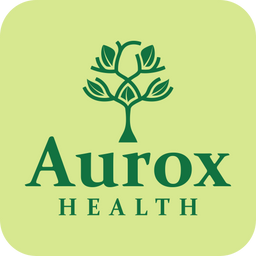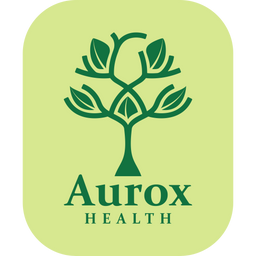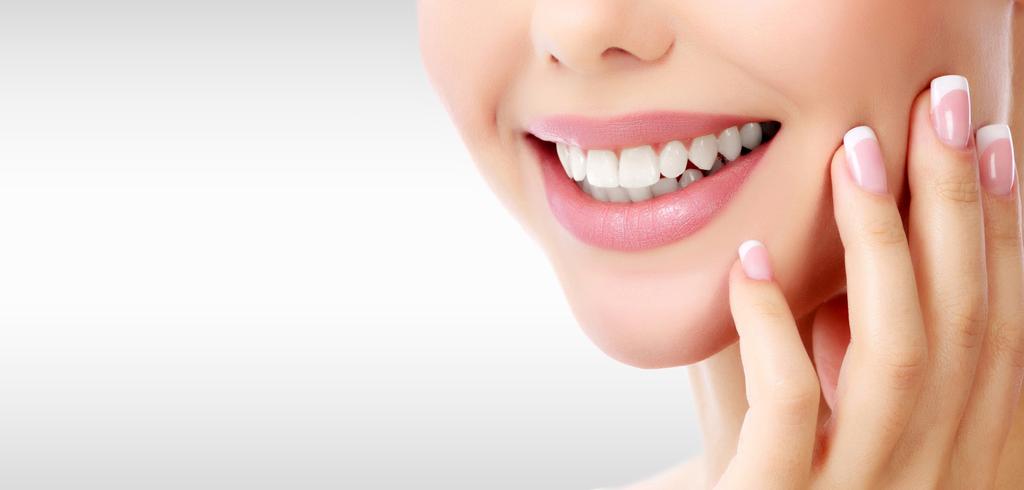I. Introduction: Let's Shed Some Light on Vitamin D3
Hey there, fellow health enthusiasts! 🌞 Ever noticed how vitamin D3 is getting all the attention lately? It's like the superstar of the supplement world. So, let's dive in and explore why everyone's talking about it.
Have you ever strolled down the supplement aisle (You may also get Vitamin D3 here.) and been overwhelmed by the sheer number of vitamin D3 bottles? You're not alone! Millions are turning to these sunshine pills (or drops) to boost their health. But why?
Picture this: Vitamin D3 is like the backstage manager of your body's health concert. It plays a role in so many aspects of your well-being that it's hard not to give it the spotlight. From bone strength to immune support, it's a true MVP in the healthcare game.
And guess what? Science has some exciting news about vitamin D3's potential benefits. Hold onto your sunhats because we're about to uncover why this vitamin is causing such a buzz! 🚀
II. What is Vitamin D3? Unmasking the Sunshine Vitamin
Now, let's get to know this superstar a bit better. 🌞
Definition and Natural Sources
Vitamin D3, aka cholecalciferol, is the sun's gift to our health. It's produced naturally in our skin when we soak up those UVB rays. But hold your horses, there's more! You can also find it in foods like cod liver oil, eggs, fortified milk, cereals, and fatty fish like salmon. Who knew a sunny side-up could be so good for you, right?
Role in Various Bodily Functions
If our bodies were a Broadway show, vitamin D3 would be the lead actor. It's a multitasker! Not only does it keep our bones strong and sturdy, but it's also a big supporter of our immune system. And wait, there's more! It helps regulate cell growth, which is essential for our overall well-being. So, in essence, it's the superhero our body deserves.
The Difference Between Vitamin D and D3
Now, you might wonder, "Aren't they the same thing?" Well, not quite. You see, vitamin D is like the parent category, and vitamin D3 is one of its cool kids. While both are important, D3 is a bit more potent and efficient at raising your vitamin D levels. So, when it comes to the sunny side of health, D3 often takes center stage.
And there you have it, the inside scoop on vitamin D3! 🌞 Stay tuned because the next act is all about the buzz around this superstar. 🚀
III. The Sensation: What's All the Hype About Vitamin D3?
Alright, folks, the plot thickens! 🕵️♀️
Study on Children and Asthma Risk
Picture this – a group of kids taking vitamin D3 supplements and voila, they have a lower risk of developing asthma! 🌬️ It's like a medical magic trick! A recent study in the JAMA Pediatrics journal revealed this little gem. Now, we're not saying it's a guaranteed cure, but it's surely got our attention.
Importance of Maintaining a Healthy Immune System
Drumroll, please! 🥁 Enter the superhero cape – maintaining a robust immune system. Vitamin D3 is like the commander-in-chief of your immunity army. It's there, rallying the troops to defend your body. While more research is needed, the experts are whispering that it could play a pivotal role in keeping you healthy. So, the next time you're sipping on that vitamin D3, just imagine your immune system gearing up for battle against those pesky invaders.
Stay tuned, because the next scene is all about how this superhero works its magic! 🦸♂️
IV. The Function: How Does Vitamin D3 Work?
Let's start with the basics. Vitamin D3 is a bit different from its vitamin buddies. While most vitamins easily dissolve in water, D3 prefers to mingle with fat. Think of it as that friend who enjoys the deep end of the pool instead of the shallows.
Here's where D3 truly shines. It plays the role of a cellular superhero. It teams up with a protein called NRF2 (not a time-traveling robot, but a real-life protein) to shield your cells from harm. When NRF2 is under attack, it activates a process called apoptosis – a fancy term for programmed cell death. This process is particularly handy for dealing with those pesky cancer cells. Vitamin D3 is the hero we need!
V. The Benefits: Why is D3 so good for you?
There’s no question that vitamin D is important for good health. It helps the body absorb calcium, which is essential for strong bones and teeth. It also appears to play a role in immune function, cell growth, and reducing inflammation.
But what about vitamin D3? Some research suggests that it may be more effective than other forms of vitamin D at raising levels of the vitamin in your blood.
So why is D3 so good for you? One reason may be that it’s more efficiently absorbed than other forms of vitamin D. Additionally, research suggests that it may stay in your body longer, providing a more prolonged benefit.
Of course, more research is needed to fully understand all its potential benefits but here are some:
-
Role in Bone Health and Calcium Absorption
Let's start with the classics – strong bones and teeth. Vitamin D3 is like the backstage crew, ensuring calcium gets to the stage where it's needed. Say goodbye to brittle bones! 💪
-
Potential Benefits in Fighting Tuberculosis
A new study is suggesting that Vitamin D3 could be a powerful tool in fighting against tuberculosis. The study found that people who were deficient in it were more likely to develop the disease. This is significant because tuberculosis is a leading cause of death worldwide.
The study's authors say that more research needs to be done, but the findings are promising. If further studies confirm these results, it could mean that Vitamin D3 supplements could be given to people at risk for developing tuberculosis. This would be a major breakthrough in the fight against this deadly disease.
-
Cardiovascular Health and Reducing Risks of Heart Disease and Stroke
Vitamin D3 keeps your cardiovascular system healthy. It helps to keep blood pressure under control and prevents the buildup of plaque in the arteries. This can reduce the chances of developing atherosclerosis, a condition that can lead to heart disease and stroke.
Also, research has found that it can help to prevent arterial calcification, which is a serious issue for people with heart disease. Calcification of the arteries is a serious risk factor for heart disease and stroke.
-
Anti-Cancer Properties and Studies on Cancer Prevention
Vitamin D3 is well known for its anti-cancer properties. It helps to suppress the growth of cancer cells and also improves your chances of survival if you do develop cancer.
Recent studies have found that it may help to prevent cancer. One study found that people who took a daily supplement of Vitamin D3 had a lower risk of developing colorectal cancer. Another study found that people who took a daily supplement of Vitamin D3 had a lower risk of developing breast cancer.
Vitamin D3 is thought to work by helping the body to fight off infections. It is also thought to help the body to repair DNA damage. It may also help to reduce inflammation. All of these mechanisms may help to protect against cancer.
The studies on Vitamin D3 and cancer prevention are still preliminary, but they are promising. If further research confirms the benefits of Vitamin D3, it could become a useful tool in the fight against cancer.
-
Promoting Healthy Skin and Preventing Depression
Vitamin D3 plays an important role in the development of new skin cells. A deficiency in this vitamin can lead to dry and scaly skin, acne, and psoriasis.
Also, Vitamin D3 is involved in the production of collagen, which helps to keep the skin thick and elastic. It also helps to regulate cell growth, which can prevent wrinkles and other signs of aging. In addition, vitamin D3 has anti-inflammatory properties, which can help to treat acne and other skin conditions.
-
Preventing Depression
Vitamin D3 has long been known for its benefits for bone health, but recent studies are showing that it may also be effective in preventing depression. A number of studies have found that people with low levels of vitamin D are more likely to be depressed, and that taking vitamin D supplements can help to improve mood.
There are a number of possible explanations for why vitamin D might help to prevent depression. Vitamin D is involved in the production of serotonin, which is a neurotransmitter that plays a role in mood regulation. Additionally, vitamin D deficiency has been linked to inflammation, and inflammation has been implicated in the development of depression.
If you are considering taking vitamin D supplements to improve your mood, it is important to talk to your doctor first. Vitamin D can interact with some medications and may not be appropriate for everyone.
Vitamin D3 has been shown to improve mood and reduce the symptoms of depression. It can also help to regulate sleep patterns, which is important for people with depression.
-
Potential in Preventing Diabetes

Diabetes is a serious condition that can lead to a number of health complications, including heart disease, stroke, and kidney disease. Vitamin D3 deficiency has been linked to insulin resistance, which can increase the risk of type 2 diabetes.
A new study has shown that vitamin D3 may help to prevent diabetes. The study, which was conducted by researchers at the University of California, San Francisco, looked at data from over 9,000 people and found that those who took vitamin D3 supplements were less likely to develop diabetes than those who did not take the supplements.
-
Boosting Immunity
A growing body of evidence suggests that vitamin D3 may help to prevent or treat a number of conditions, including cancer, heart disease, and diabetes. It may also help to boost immunity. A recent study found that vitamin D3 supplements may help to reduce the risk of respiratory infections.
A strong immune system is important for protecting against infections. Vitamin D3 strengthens your immune system and may help to reduce the severity of symptoms if an infection does occur.
-
Improving Cognitive Function
One study found that individuals with vitamin D3 deficiency were more likely to experience memory problems and cognitive decline. Another study found that vitamin D3 supplementation improved cognitive performance in older adults.
Vitamin D3 appears to be involved in brain development and maintenance, and it may help protect against age-related cognitive decline. If you are deficient in vitamin D3, consider taking a supplement or increasing your exposure to sunlight.
-
Improving Dental Health
Vitamin D3 is not only good for your bones, but it can also improve your dental health. A recent study showed that people who took vitamin D3 supplements had better dental health- with fewer cavities and less gum disease than those who did not.
Vitamin D3 helps your body absorb calcium, which is important for strong teeth and bones. It also helps fight inflammation, which can lead to gum disease. Vitamin D3 is vital for the body to form calcium-rich teeth and bones, but it can also help to protect against tooth loss. A study found that there was a strong link between vitamin D3 levels and dental health in older adults.
Stay tuned; the next act delves into the controversy surrounding vitamin D3. 🤔
VI. The Controversy: What Are the Risks of Vitamin D3?
Every superhero has its kryptonite, and for Vitamin D3, it's not all sunshine and rainbows.
Concerns About High Doses and Increased Calcium Levels
Hold onto your capes because too much of a good thing can be bad! High doses of vitamin D3 can lead to excessive calcium levels in your bloodstream, potentially causing kidney stones and other issues. Moderation is key!
Allergies and Interactions with Medications
Even superheroes have their quirks, and vitamin D3 is no exception. Some folks might be allergic to it, and it can play tricks when it meets certain medications. It's like the unexpected plot twist in a superhero movie – always consult your healthcare pro.
Safe Recommended Doses and Individual Considerations
Fear not! There's a safe zone. Recommended doses exist for a reason. Depending on your age and needs, there's an appropriate amount of vitamin D3 for you. Remember, consult your healthcare provider; they're like the oracle of health advice!
Now, as we wrap up this act, remember that every superhero has its vulnerabilities, but with a little caution and guidance, you can harness the power of D3 safely.
VII. Conclusion
In the grand finale, let's tie all these vitamin D3 threads together.
From battling asthma risks to fortifying your immune system, from shielding against heart diseases to standing strong in the fight against cancer, Vitamin D3 has shown us its superhero potential. It's not just about bones and teeth; it's about a holistic approach to health.
Think of D3 as your health's trusty sidekick. It's crucial for maintaining well-being, and we should all strive for adequate levels. Whether through sunlight, fortified foods, or supplements, keep those levels up.
But wait, the adventure isn't over! Science is an ever-evolving plot, and we need more chapters to confirm these findings. The quest to unlock vitamin D3's full potential continues.
As our tale of vitamin D3 draws to a close, remember, it's a promising character in the story of your health. Keep an eye on future research, and who knows, this superhero might just save the day! 🌞💪







